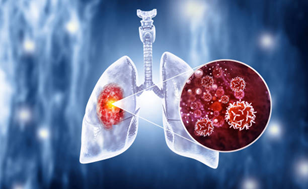Cancer and Prevention
Cancer remains one of the most formidable challenges in modern medicine. Its diagnosis can be overwhelming, affecting the patient and their loved ones. As research advances, the quest for effective preventive cancer methods becomes increasingly urgent. Dr. Sridhar PS, a trusted name for CyberKnife Treatment in India, emphasizes the importance of understanding and acting on these preventive strategies to combat the impact of cancer.
“Prevention is our strongest ally against cancer. By focusing on early detection and lifestyle changes, we can significantly reduce the burden of this disease on individuals and families. Empowering patients with the right knowledge is the first step towards a healthier, cancer-free life.”
Are you or a loved one living with cancer? Consult an experienced cancer specialist for support and guidance.
But how can you stay ahead of cancer before it takes a toll? Let’s dive into the critical steps of catching it early.
Screening and Early Detection
Regular screening and early detection play a vital role in preventive cancer strategies, helping to identify and address potential issues before they progress.
Liver Cancer
- Ultrasound: They help detect tumors or abnormalities early, especially in high-risk individuals.
- AFP Blood Test: Alpha-fetoprotein levels are elevated in people with liver cancer.
- CT Scan or MRI: Advanced imaging techniques provide detailed liver images.
- Low-Dose CT Scan (LDCT): Recommended for individuals at high risk, particularly those with a history of heavy smoking.
- Chest X-ray: Although less sensitive than LDCT, a chest X-ray can sometimes detect lung tumors.
- Sputum Cytology: Analyzing sputum under a microscope, especially in those who have a chronic cough.
Cervical Cancer Screening
- Pap Smear (Pap Test): Collects cells from the cervix to detect precancerous or cancerous changes.
- HPV Test: Identifies high-risk types of human papillomavirus (HPV).
- Colposcopy: If a Pap smear result is abnormal, a colposcopy allows for a closer examination of the cervix and possibly a biopsy.
Prostate Cancer Prevention
- Prostate-Specific Antigen (PSA) Blood Test: Measures if PSA levels in the blood are high.
- Digital Rectal Exam (DRE): A physical examination of the prostate gland to detect abnormalities or enlargement.
- Transrectal Ultrasound (TRUS): Sound waves create an image of the prostate and are helpful if PSA levels are high or abnormalities are found during the DRE.
- MRI or CT Scan: In some instances, advanced imaging techniques may help to assess the prostate more thoroughly.
Understanding risk factors is critical to cancer prevention.
Risk Factors
Liver Cancer
- Chronic hepatitis B or C infection
- Excessive alcohol consumption
- Obesity and fatty liver disease
- Exposure to aflatoxins (toxins produced by certain fungi)
- Genetic conditions such as hemochromatosis
- Diabetes
Lung Cancer
- Smoking tobacco (primary and secondary smoke)
- Exposure to asbestos
- Exposure to radon gas
- Air pollution
- History of chronic lung diseases such as chronic obstructive pulmonary disease (COPD)
- Family history of lung cancer
Cervical Cancer
- Persistent infection with human papillomavirus (HPV)
- Smoking
- Multiple sexual partners
- Early sexual activity
- Weakened immune system (e.g., due to HIV/AIDS)
- History of sexually transmitted infections (STIs)
Prostate Cancer
- Age (risk increases after age 50)
- Family history of prostate cancer
- Genetic mutations (e.g., BRCA1 and BRCA2)
- African American ethnicity
- High-fat diet
- Obesity
These risk factors help understand susceptibility to these cancers and highlight the importance of preventive measures and regular screenings.
Do you have reason to believe that you may be at a higher risk of getting cancer? Reach out to a certified oncologist for proper evaluation and personalized guidance on the best preventive measures to take. Early detection and expert advice can make all the difference.
Adopting a healthy lifestyle can play a significant role in cancer prevention.
Lifestyle Modifications for Prevention
Dr. Sridhar PS, well-known for effective CyberKnife Treatment in India and Kenya, advocates for a proactive approach to cancer prevention. Here are some effective strategies:
Consume a diet rich in fruits, vegetables, and whole grains while limiting processed foods and red meat. Leafy greens, berries, and cruciferous vegetables are some of the best cancer-fighting foods.
- Engage in physical activity to maintain a healthy weight.
- Avoid smoking and secondhand smoke to lower the risk of lung and other cancers.
- Limit alcohol intake to decrease the risk of liver and several other cancers.
- Use sunscreen and avoid excessive sun exposure to reduce the risk of skin cancer.
- Routine medical check-ups and screenings enable early detection of any potential issues, improving the chances of successful treatment.
- Getting vaccinated against cancer-causing viruses, such as HPV for cervical cancer, can provide significant protection.
Let’s understand why Dr. Sridhar PS is among the leading names in radiation oncology, his innovative preventive oncology services, and how they can make a difference in your health.
About the Doctor
Prof. Dr. Sridhar Papaiah Susheela is a seasoned radiation oncologist with over 19 years of experience. He specializes in advanced radiation oncology technologies like IMRT, IGRT, SBRT, Tomotherapy, and CyberKnife Treatment in India, particularly for treating complex and inoperable tumors. As the Head of CyberKnife Academia, he has treated over 10,000 patients, including 3,000 with CyberKnife. Dr. Sridhar is also skilled in PET CT scans and has expertise in genomics, AI, and immunoradiotherapy. He currently practices at Apollo Hospital, Bangalore, and Apollo Proton Cancer Centre, Chennai, focusing on enhancing patient outcomes through cutting-edge treatments.

Dr. Sridhar’s Preventive Oncology Services
Radiation specialist Dr. Sridhar leads a comprehensive approach to cancer prevention. Here’s what they typically include:
Cancer Screening Programs
Dr. Sridhar emphasizes the importance of regular screenings, including mammograms, Pap smears, colonoscopies, and PSA tests, to catch cancer early when treatment is most effective.
Risk Assessment
He carefully evaluates personal and family medical histories, conducts genetic testing, and assesses lifestyle factors to identify those at higher risk for certain cancers.
Vaccinations
Patients receive vaccines like the HPV vaccine, which can prevent cancers caused by specific viruses, such as cervical cancer.
Lifestyle Counseling
Dr. Sridhar provides personalized lifestyle counseling, helping patients adopt healthier habits that reduce cancer risk. This includes recommendations on diet, exercise, and quitting smoking.
Education and Awareness
He actively educates his patients about cancer prevention, early symptoms, and the critical importance of regular screenings, empowering them with the knowledge to take control of their health.
Genetic Counseling and Testing
Dr. Sridhar offers genetic counseling and testing for hereditary cancer syndromes, enabling high-risk individuals to take preventive measures tailored to their specific needs.
Chemoprevention
He prescribes medications or natural substances to patients at high risk, helping to reduce the likelihood of cancer development.
Monitoring and Follow-up
Dr. Sridhar’s team closely monitors patients with precancerous conditions or high-risk profiles, ensuring that any changes are detected and managed promptly.
Dr. Sridhar, a sought-after doctor for CyberKnife Treatment in India, adds:
“Preventive Oncology Services are crucial in reducing cancer incidence and mortality, promoting early intervention, and improving long-term outcomes. These services empower individuals to take proactive steps in managing their cancer risk.”
Make the right choices to reduce your cancer risk and enhance your future well-being.
Take control of your health today by exploring the benefits of Preventive Oncology Services. Consult with a qualified doctor to stay informed and be proactive.
Curious about common cancer types or survival rates? Let’s dive into the answers to your most pressing questions.
FREQUENTLY ASKED QUESTIONS
In Men:
- Prostate Cancer
- Lung Cancer
- Colorectal Cancer
- Bladder Cancer
- Melanoma (Skin Cancer)
In Women:
- Breast Cancer
- Lung Cancer
- Colorectal Cancer
- Uterine Cancer
- Thyroid Cancer
The survival rate for prostate cancer is generally high, especially when detected early.
- Localized/Regional Prostate Cancer: Nearly 100% of men will survive at least 5 years after diagnosis.
- Distant Prostate Cancer: The 5-year survival rate drops to about 30%, emphasizing the importance of early detection.
In Men: The lifetime risk of developing cancer is approximately 1 in 2.
In Women: The lifetime risk is about 1 in 3.
Various factors, including genetics, lifestyle, and environmental exposures, can influence these probabilities. Regular screenings and preventive measures can help reduce risk.
Disclaimer: The information shared in this content is for educational purposes only and not for promotional use.









 Consume a diet rich in fruits, vegetables, and whole grains while limiting processed foods and red meat. Leafy greens, berries, and cruciferous vegetables are some of the best cancer-fighting foods.
Consume a diet rich in fruits, vegetables, and whole grains while limiting processed foods and red meat. Leafy greens, berries, and cruciferous vegetables are some of the best cancer-fighting foods.